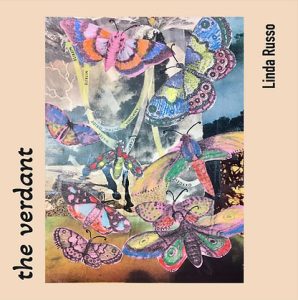Paul Revere’s Horse – 2011
Issue 5
2011
Biannual
Patrick James Dunagan
The Editor’s Note for this issue suggests, “Texts, like lives, are precarious projects.” And Iranian ex-patriot Moniru Ravanipur, whose writings are banned in her homeland, interviewed by Miranda Mellis, reminds us that, “Stories are a testament to their time, especially in countries like mine.” Ravanipur knows too well the vital connection between writing and living. She describes how, “The short story for me is like a mirror that reflects different worlds—worlds that already exist, or worlds that could be or should be.” No matter what else, writing allows for confronting and challenging any established order.
The Editor’s Note for this issue suggests, “Texts, like lives, are precarious projects.” And Iranian ex-patriot Moniru Ravanipur, whose writings are banned in her homeland, interviewed by Miranda Mellis, reminds us that, “Stories are a testament to their time, especially in countries like mine.” Ravanipur knows too well the vital connection between writing and living. She describes how, “The short story for me is like a mirror that reflects different worlds—worlds that already exist, or worlds that could be or should be.” No matter what else, writing allows for confronting and challenging any established order.
Complimenting Ravanipur’s views, Michael Mejia’s narrator, in his story “Night/Nurse/Novel Part III,” believes that “a book should, in all ways, seem like it arrived from a future that will never arrive except in the book’s encounter with a reader, who, stricken by the book, wounded by the book, maimed by the book, can never be in the same way after finishing the book.”
Literary writing is a conversation that is not imagined from out of the ether. It is grounded in events of life and remains a part of life. This leads to an uncanny tendency of writers blurring texts and world affairs together, as the writing/reading crosses lines of reality. Azareen Van der Vliet Oloomi’s “Geiser Enters My Room, Or, Conversations with Max Frisch’s Geiser” enters the terrain of inter-textual writing. Here reading merges with living:
The phone rings again. It is my brother. ‘More dreams?’ I ask. ‘No,’ he says, ‘I am worried about the state of our nation.’ I read the headlines as they run across the bottom of the screen. I catch a few words, a few numbers here and there, enough to understand that there are people dying, that there are people dead. Every nation, I think to myself. ‘What?’ my brother asks. ‘We come from one nation,’ he says. ‘Express yourself in the singular,’ he says. What I thought I had thought I had said out loud. Geiser takes the receiver from my hand. Geiser hangs up the phone. Geiser is nobody’s puppet. Geiser has broken free. Geiser is a self-made man. Geiser is self-secure. Geiser is confident. Suddenly, watching Geiser, I remember what Cixous said Bernhard had said, (Thomas Bernhard), and I say it to Geiser who has come into existence by way of Frisch: ‘In certain moments you have to cross over corpses, you have to kill someone in order to write.’ Geiser takes a step back. Geiser removes his eyes. Geiser throws his eyes at me as though they were a pair of rotten shallots.
Such mixing of reading and writing with living (“Geiser” is a protagonist in the writings of Max Frisch, “Cixous” is the philosopher Hélèn Cixous) is endless, and somewhat hopeless, offering few answers, but continually opens the imagination, offering resistance and challenge.
So it is writing that does not end. Georges Perec’s short, early essay “Wozzeck, or the Method of Apocalypse,” here translated by Rob Halpern, declares that “The crisis of Western Civilization at the beginning of the twentieth century has given birth to works that bear witness to that crisis, without being able to go beyond it. These works of crisis are themselves crisis.” Writing as the act of refusal to match expectations to be anything other than what it is. Jeffrey Herrick’s poem “Alveromancy” challenges the limits between languages and sound, demonstrating the bridges sound provides language(s) towards sense:
Due lacks, O’s mist
Aches, motes tout
Espirit, fey Fate
Eared from one tongue
Lunged where gee ha-has
Vibe rates at ought
Hard as heard.
Writing needs be heard. Paul Revere’s Horse intends to be confronted and read. The editor’s note makes an impassioned argument for the physicality of text as physical thing in actual lived space:
. . . what is essential within the literary field is that readers do not abandon texts, and that they do not abandon the memories of struggle and courage that writers have committed to those texts, and that we circulate them—indeed, outside of the electronic interface as well as inside—and insist on their continued importance to be on our desks after we have gone to bed, or to be on the shelf for reference thirty, or a hundred, years later. . . . recognizing how much is at stake in a work of writing, and of allowing writings to be building blocks in our lives and in our minds, and not just moments to be forgotten, as if they had never been.
This issue is filled with such works. Not merely to entertain or distract, but rather to sound out the necessary call: that human connection spanning culture, time, and place, bonded by text.
[www.paulrevereshorse.org/]




